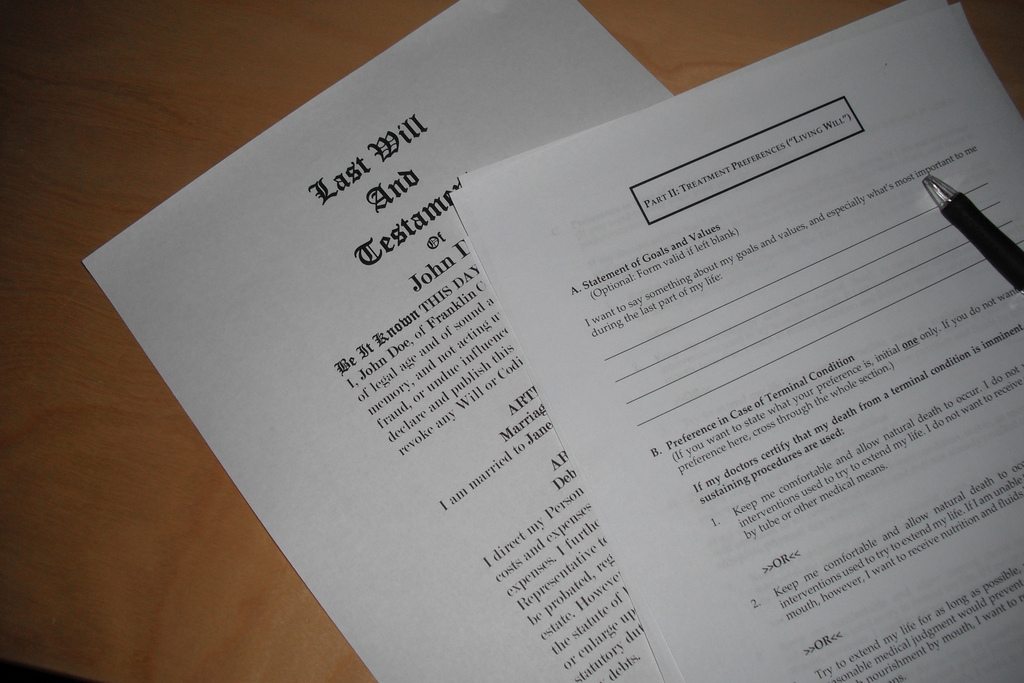I Have a Non-Muslim Family. How Should I Go About Writing My Will?
Hanafi Fiqh
Answered by Shaykh Umer Mian
Question: Assalam’aleykum
I am a divorced single women. I have 3 daughters and a brother who is not Muslim. I also have a male cousin who is not a Muslim either.
I own my own home with a small mortgage on it and I have a small amount invested. According to a calculator my daughters receive 2/3 of my estate and my brother should receive 1/3 of it.
I would like to leave my money to my daughters after deductions to charity. Can I use my brothers 1/3 for charity instead?
Answer: Wa alaikum as-salam wa rahmatullahi wa barakatuhu
Short answer:
It would not be valid to make a bequest to your own daughters. Rather, daughters are divinely-ordained inheritors and will receive their inheritance shares accordingly. In addition, your non-Muslim relatives will not receive inheritance from you.
Detailed answer:
In order to answer the question, a brief summary of Islamic inheritance law is needed. In Islamic inheritance law, when a Muslim dies his or her estate (i.e. all wealth and property left behind after death) is applied to the following four categories, in order:
1. Funeral expenses
2. Unpaid debts the deceased left behind
3. The bequest, up to one-third
4. Divinely-ordained inheritors
The bequest (“wasiyyah” in Arabic) is the right of a Muslim to will that their wealth be given to any particular entity (e.g. friends, charitable causes, etc.) other than the divinely-ordained inheritors. The latter are specified in the Qur’an and Sunnah and include most relatives such as parents, grandparents, children, grandchildren, siblings, aunts, uncles, etc. The bequest cannot be made for any of these people because their shares of the inheritance have been clearly specified in the Qur’an and Sunnah, and allowing a bequest to them is tantamount to changing the Divine decree regarding their shares. Also in Islamic inheritance law, the bequest is allowed only up to one-third of one’s estate. If a Muslim made a bequest for more than one-third of their estate, it would be executed only up to one-third and the remainder would be distributed amongst the divinely-ordained inheritors. Finally, note that the bequest is optional and it is mustahabb (preferred) to keep it minimal or leave it off entirely. This is considered a type of ihsaan (goodness) to one’s divinely-ordained inheritors (i.e. close relatives) because it maximises their inheritance.
Next, you should be aware that there is no inheritance between Muslims and non-Muslims. This is based on the explicit words of the following hadeeth:
عَنْ أُسَامَةَ بْنِ زَيْدٍ رَضِيَ اللَّهُ عَنْهُمَا أَنَّ النَّبِيَّ صَلَّى اللَّهُ عَلَيْهِ وَسَلَّمَ قَالَ لَا يَرِثُ الْمُسْلِمُ الْكَافِرَ وَلَا الْكَافِرُ الْمُسْلِمَ (متفق عليه)
The Messenger of Allah (may Allah be well pleased with him) said “A Muslim does not inherit from a non-Muslim, nor does a non-Muslim inherit from a Muslim” (recorded by Al-Bukhari and Muslim).
Finally, since one’s inheritance cannot distributed until after one dies, determining how to distribute the inheritance among the divinely-ordained inheritors depends on which inheritors survive the deceased (i.e. who’s alive when they die).
In light of all of this, we can conclude the following about your situation:
1. Your non-Muslim relatives will not receive inheritance from you. For purposes of determining Islamic inheritance, you can ignore them.
2. It would not be valid to make a bequest to your own daughters. Rather, daughters are divinely-ordained inheritors and will receive their inheritance shares accordingly.
3. The exact amount your daughters would receive as divinely-ordained inheritance shares depends on who else survives you. You should sit with a qualified scholar of Islamic inheritance law to work out the different possibilities.
Finally, you should know that the prohibition of bequeathing to your divinely-ordained inheritors, as discussed above, does not prohibit you from gifting those people while you’re alive. Hence, during your lifetime you could gift all or a portion of your wealth to your daughters (or any other close relatives). This is permissible, and the wealth would immediately transfer to the giftee. However, the exception to this is when a person reaches terminal illness (i.e. they are “on their deathbed”). At that point, all gifts are treated as bequests and subject to the prohibition mentioned above (i.e. no bequests to divinely-ordained inheritors).
Wassalam,
Umer
